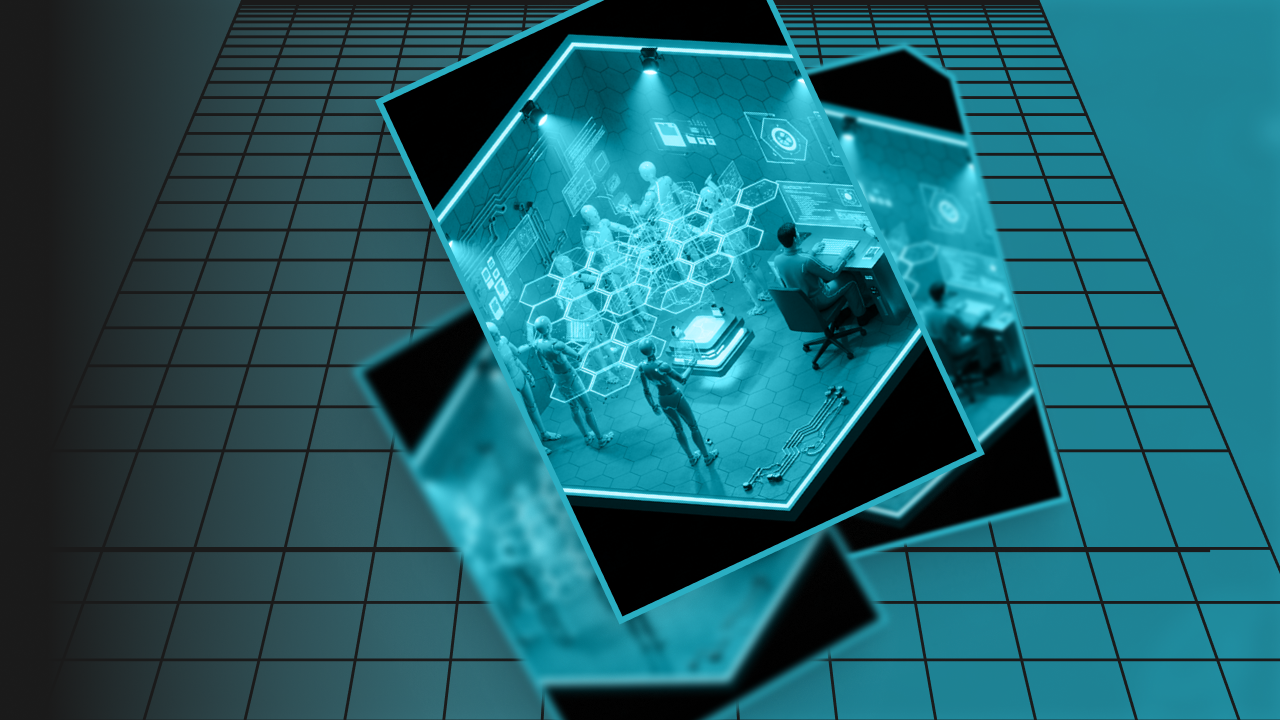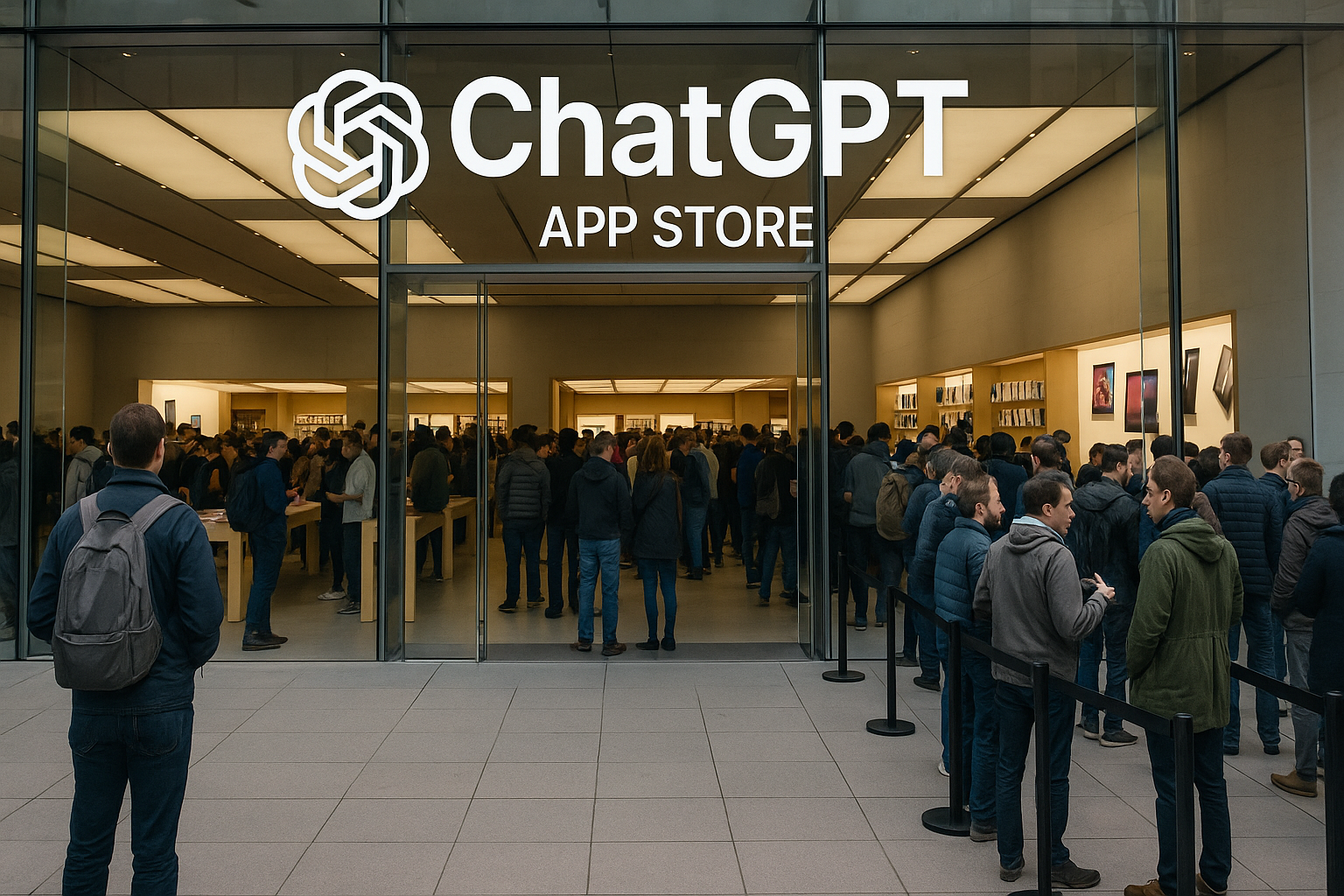Dootrix's Top 5 AI Predictions for the Year Ahead
Rob Borley
5 min read • 18 December 2023
Dootrix's Top 5 AI Predictions for the Year Ahead
What does 2024 hold in store? Dootrix CEO, Rob Borley, looks forward to the trends he thinks the next 12 months may bring.
It’s become almost traditional, not least in the world of technology, for people to give their best guesses about where things are going. Mostly this involves looking at established trends and extrapolating them. Yes, it’s more exciting to predict this or that technology leader will go completely off the rails or that disaster lurks around every corner, but it’s not particularly useful.
So here are my first three shouts for the next year. Here is a clue; OpenAI has a huge part to play. We wont ask, just yet, will AI will take my job. The last two will follow later in the week.
2024 tech prediction #1: Bot-to-bot communications make AI more useful
The first one, unsurprisingly relates to Artificial Intelligence. If there will be a dominant topic of conversation in tech over the next 12-24 months, it’ll almost certainly be AI. Open AI integration is definitely something we see ourselves increasingly focused on for our clients. So here are some AI Predictions.
It’s pretty much a given that AI will quickly become more sophisticated and will be able to handle increasingly complex tasks. It’ll also become much more personalised, meaning that the more data points it has access to relating to you (a truly unique individual, yes, but one who actually has a lot in common with others in your various cohorts), the more it’ll be able to make decisions and carry out tasks for you tailored to your precise needs.
If the interwebs can feel slightly stalky now (think about all those ads that know you really want the latest Dungeons and Dragons manual or that particular Range Rover), it’s only going to get stalkier. Some people like that, others not so much.
My particular prediction (perhaps more a finger in the wind) is that we may see a shift towards bot-to-bot communications – not so much ‘hey why don’t you get your bot to talk to my bot and we’ll do drinks sometime’, as chains of bots communicating directly to get tasks done.
For instance: you put on your to-do list that you want to buy a bunch of flowers for your significant other. Various bots, possibly two or three discrete ones, check your to-dos, note the flowers task, work out which of the people in your circle is your S.O., search for florists in their neck of the woods, trawl through your photos, identify your S.O., figure out their favourite colours or flowers, order an appropriate bouquet, pay for them and arrange delivery. They also remember to notify you that it’s all been done.
There will still be an uncanny valley to cross where, until the technology is perfected, bots randomly send flowers to your head of HR (possibly a good move) or someone who’s been sending you unwanted amorous messages (possibly a less good move) or mix up someone’s spouse with someone they’ve been having an affair with. The AI-driven bedroom farce isn’t yet a thing, but I predict it will be before Artificial Intelligence learns to get it right – which it doubtless will do eventually.
2024 tech prediction #2: AI’s challenge for CyberSec
The second thing that I reckon we’ll be more and more concerned with over the next couple of years is cybersecurity; specifically rising concerns posed by Artificial Intelligence.
It’s wholly predictable that AI will be used to probe for vulnerabilities and to write exploits. After all, if you can use tools like GitHub Co-Pilot to write good code, it can be used to write malicious code. Black hats are as smart as the next hat. They’ll use whatever is available to prize open the locks designed to keep them out.
But there’s another level of threat that most people are just waking up to – and deepfake technology could be at the heart of it.
For instance, deepfakery could give rise to phishing attacks on steroids.
Just imagine that AI can figure out your relationship to another person – say a parent – by scraping the necessary data from social media. It then takes in a video you’ve posted and manipulates it so that your mum gets a video message from you saying ‘I’m in trouble. Can you send me £200 in Amazon vouchers.’
Or perhaps it replaces the person calling from a questionable call centre in South Asia pretending to be from your bank with a smartly suited Home Counties executive who video calls you and, powered by AI, tries to sweet talk you into handing over your security details. In the early days it may be an obvious fraud, but down the line? And even if you can spot a fake, what about your folks?
This is where I could go full Bladerunner on you and paint a picture of a dystopian near-future where nothing is as it seems. I may not have watched C-beams glitter in the dark near the Tannhäuser Gate, but I can predict with a degree of confidence that the planet’s big election year will bring AI security threats into sharp focus. The AI video bot may be a way off, but deepfake videos of politicians aren’t. Not only will decent people running for office find themselves smeared by fake audio or video of them apparently saying incriminating things, but unscrupulous ones will dismiss instances of them being caught out as ‘fake news’.
So, one major role of AI will also be to fight back, to establish trust. Perhaps that will be to develop a digital watermark that’s a sign of authenticity, or better tools to highlight what is fake. The more technology gets used by bad actors to undermine democracies and subvert the popular will, the more pressure will grow to tackle the problem.
My prediction then is that we will see the beginnings of an AI arms race between those determined to protect the integrity of our institutions and our ability to trust the information we rely on, and those who are equally determined to wreck them.
2024 tech prediction #3: The IoT reaches a tipping point
Behind the third door in my mini advent calendar of ideas is that we’ll see connected devices become the default, marking a rapid expansion of the Internet of Things.
Of course, the IoT was a big talking point a few years back, then it all went a bit quiet. However that hasn’t meant that the growth of connected devices has slowed. Quite the opposite. If anything, with the acceleration in the development of AI, it’s shifted up a gear. AI makes the vast amount of data generated by IoT devices (and there are projected to be 207 billion of them by the end of 2024) useful in a way it wasn’t before.
Hitherto the IoT was mainly about phones, tablets and laptops, with a few smart-lights and connected fridges thrown in. Now we’re looking at a world where all sorts of things are hooked up to the interwebs; from driverless cars trying not to run over next door’s cat and the lights in your street monitoring how much power they’re using, to the toothbrush in your bathroom cabinet hassling you about whether you should be brushing more regularly in the morning.
On one level this is potentially great. We might, for instance, see more people using smart pill boxes that make sure they don’t forget to take their medication (non-adherence is a major issue in healthcare).
On another, it multiplies risks by opening up countless new vectors for attack and, as processing power is often minuscule on IoT devices, security is a challenge. Vital devices could be shut down remotely or even totally borked.
There are also issues around privacy. Powers that allow police to search your phone would also allow them to interrogate that connected toothbrush of yours. ‘Well officer, he’d been drinking heavily on Thursday night from the smell of his breath…’
The tipping point, however, is that in the next year or so devices in a lot of categories will become connected by default. If you want a plain-vanilla-connection-to-a-socket-in-the-wall and no more, then you will need to make a positive choice to seek out such a thing. Otherwise your TV and your fridge and your electric blanket may well be sharing intimate details of your life with goodness-only-knows-who.
Later this week: predictions four and five.
If you want a technology partner that’s always looking ahead, get in touch
Rob Borley

